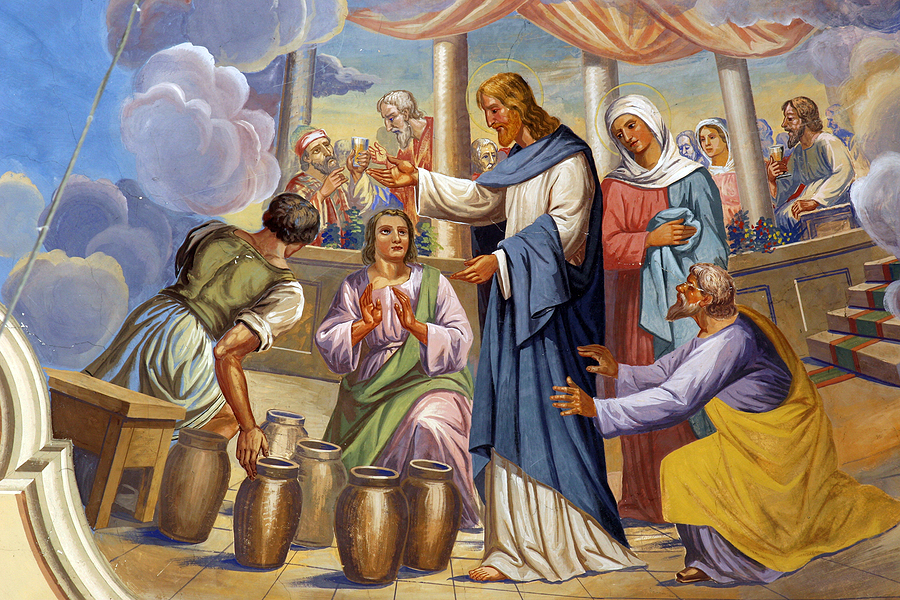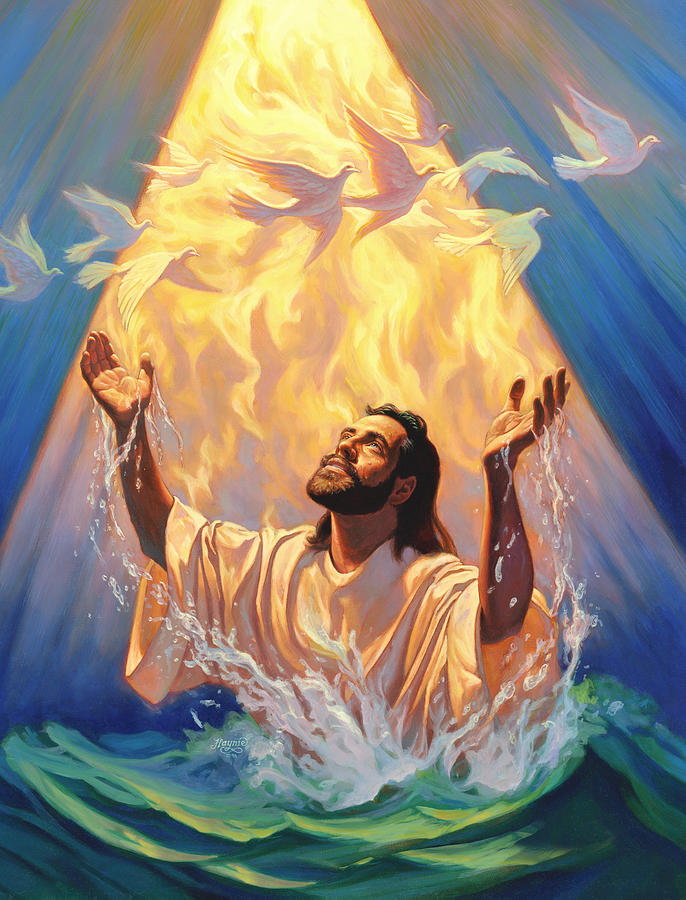
Epiphany: What does it mean again?
“You have had an epiphany,” remarked my friend when I told her about my decision to become a Catholic Christian. Although my friend Adele’s comment occured a couple of decades ago now, I think of it on this day we celebrate Epiphany.
Perhaps I’d heard the word before but certainly it was not one used in my every day thoughts or speech. Or that of the people around me, for that matter. I was silent so long that she thought I’d hung up. Deciding that the word meant seeing something in a new way or was perhaps synonymous with enlightenment, I finally agreed that yes, I guess I had an epiphany.
But for our celebration today, epiphany is a word for which there are few, if any, synonyms.
Marking the end of the Christmas season in the Christian liturgy, Epiphany Sunday occurs twelve days after Christmas and commemorates three events—manifestations— in the life of Christ:
- The incarnation of Christ, Emmanuel: God is here,
- The miraculous star which led three wise men on a long journey to seek the Messiah of the world.
- Epiphany also celebrates a third event: The beginning of Christ’s mission on earth. His conversion of vats of water used to wash the dusty feet of desert walkers into the finest wine of any served before.
- At His mother’s behest, before, ‘His time had come.’

My friend’s interpretation of the word epiphany wasn’t wrong.
But ‘seeing things in a new way’or ‘enlightenment’ lacks its essence: the person of Christ, the baby and Christ the man. The very Person through whom we see things in a new way; the Person who enlightens.
“BEHOLD!“
“STOP!”
“PAY ATTENTION!”
That’s how Pastor Reverend Eric Ritter began his homily for the 6 am celebration of the feast of the Holy Name of Jesus.
“When do we hear that word, Behold?” Fr. Ritter asked. “It isn’t a word we use a lot, is it?”
The priest answered his rhetorical questions with, “Behold, I am the handmaid of the Lord.”
“Behold your mother.”
And then, “”Behold, the Lamb of God, who takes away the sin of the world.”
With his last statement, Fr. Ritter spoke about Tuesday morning’s Gospel passage,
John the Baptist saw Jesus coming toward him and said,
“Behold, the Lamb of God, who takes away the sin of the world.
He is the one of whom I said,
‘A man is coming after me who ranks ahead of me
because he existed before me.’
I did not know him,
but the reason why I came baptizing with water
was that he might be made known to Israel….”
That’s what was missing from the secular definition of epiphany. Seeing things in a new way and enlightenment are far too passive…inert. But, BEHOLD!?
Yes. That’s it.
The wise men.
These unnamed men who journeyed to a manger in Bethlehem, where an infant lay amidst straw. Accompanied by, we’re told, a number of animals. Maybe donkeys, a lamb or two, some cattle and shepherds.
In the ancient world, there were few countries with citizens who knew astrology well enough to use the heavens as a guide for a journey of close to 3000 miles. An exception was India. There lived magi with the knowledge to make the inconceivable trek.
Tradition tells us there were three. And yet the Gospel of Matthew does not tell us how many. Just that they were the wise men from the east.
Who were these men?
What impelled them to set off on a journey that must have taken years?
- We know who they were not.
They were not God’s chosen people. They were not from Abraham or the root of Jesse, one of the twelve tribes of Israel. The people with whom God had made an everlasting covenant. They were not Jews.
- They were the forerunners of leaders of nations…of Gentiles.
- They were the beginning of the new covenant.
- One that includes all nations, all peoples.
- St. Paul writes of what must have driven those long ago travelers: Faith.
- Before faith came, we were held in custody under law, confined for the faith that was to be revealed. Consequently, the law was our disciplinarian for Christ, that we might be justified by faith. But now that faith has come, we are no longer under a disciplinarian. For through faith you are all children of God. In Christ Jesus.
- For all of you who were baptized into Christ have clothed yourselves with Christ.
- There is neither Jew nor Greek, there is neither slave nor free person, there is not male and female; for you are all one in Christ Jesus.
- And if you belong to Christ, then you are Abraham’s descendant, heirs according to the promise.
Mystic Maria Valtorta writes of the wise men:
“From the main road a cavalcade is approaching. Harnessed horses are
led by hand, dromedaries and camels bear riders or are carrying loads. The
cavalcade, lit up by the star, is a fantasy of splendor….everything shines
and the light of the star increases the splendor of metals, leathers
silks, gems, coats. Eyes are radiant and mouths smiling because another
splendor shines in their hearts: the splendor of a supernatural joy.
…The oldest of the Magi speaks on behalf of them all. He explains to Mary
that one night the previous December, they saw a new star of an unusual
brightness appear in the sky. The maps of the sky had never shown or mentioned
such a star. Its name was unknown because it had no name. Born out of
the bosom of God, it had flourished to tell men a blessed truth, a secret
of God. But men had not paid any attention to it, because their souls were
steeped in mud. They did not lift their eyes to God neither could they read the
words that He writes with stars of fire in the vault of Heaven.
They had seen it and had striven to understand its meaning…they devoted
themselves entirely to studying…the stars, the time, the season, the
calculation of the hours passed, and the astronomic calculations told them
the name and the secret of the star. Its name: “Messiah.” Its secret:
“The Messiah has come into our world.” And they set out to worship
Him. Each unknown to the others….For each of them, from three different
directions, they followed the star towards Palestine. And then they met beyond
the Dead Sea. God’s will had gathered them there….”
READ MORE Mission of Divine Mercy Newsletter The Adoration of the Wise Men
Monday ends the Christmas season
with the Baptism of Christ.
And we return to ordinary time. Epiphany – What Does It Mean Again?
The word ordinary conveys the commonplace, the lack of something special, the routine. And yet, quite often its opposite, is all too often, a crisis. Yet another lie of our black and white world: We’re either bored or terrified, there’s no in-between.
But that’s not the meaning of the church’s ordinary time. It’s root is the Latin word, ordinalis: numbered or ruled…a seasonal rhythm of order. Like the rhythm of the seasons, langorous summer days and the blessing of each new day.
The green-colored vestments used by the priests and on the altar during ordinary time? The green signifies growth, our growth in the daily routines of living our lives, caring for the creatures and the creation we’ve been given. Precisely like the mesmerizing greens of trees and grass. Extending to us the invitation to the grace of the virtue of gratitude.
During the greater part of his life, Jesus shared the condition of the vast majority of human beings: a daily life spent without evident greatness, a life of manual labor.
Catholic Catechism 531
This means that “Centuries later, all can enter into fellowship with Jesus by the most ordinary events of daily life.”(Catechism 533.)
BEHOLD.
STOP.
PAY ATTENTION.
The Creator of the universe lays helpless in a manger.
Because our blessed Mother understood the humiliation of running out of wine at the wedding, we hear her last words to the servants and us, “Do whatever he tells you.”
Despite knowing that her Son’s transformation of the water into wine would jumpstart His Passion and Crucfixion, she asked Him to save this family from shame.
When God is in us, we are lifted up, rendered joyful, transfigured. Therefore, when Mary says, “They have no wine,” she is speaking of all of Israel and indeed all of the human race. They have run out of the exuberance and joyfulness that comes from union with God.
And this is precisely why Jesus calls her “woman.” We can be easily misled into thinking that he was being curt or disrespectful. But he was addressing her with the title of Eve, the mother of all the living. Mary is the representative here of suffering humanity, complaining to God that the joy of life has run out.





Lin, may you and John have a joyous and blessed 2023?
Behold
Stop
Pay Attention
Amen
Blessings, Michael
Michael, thank you!!!
As always, a beautiful, inspired perspective of our faith,
Hello and a blessed Epiphany!!